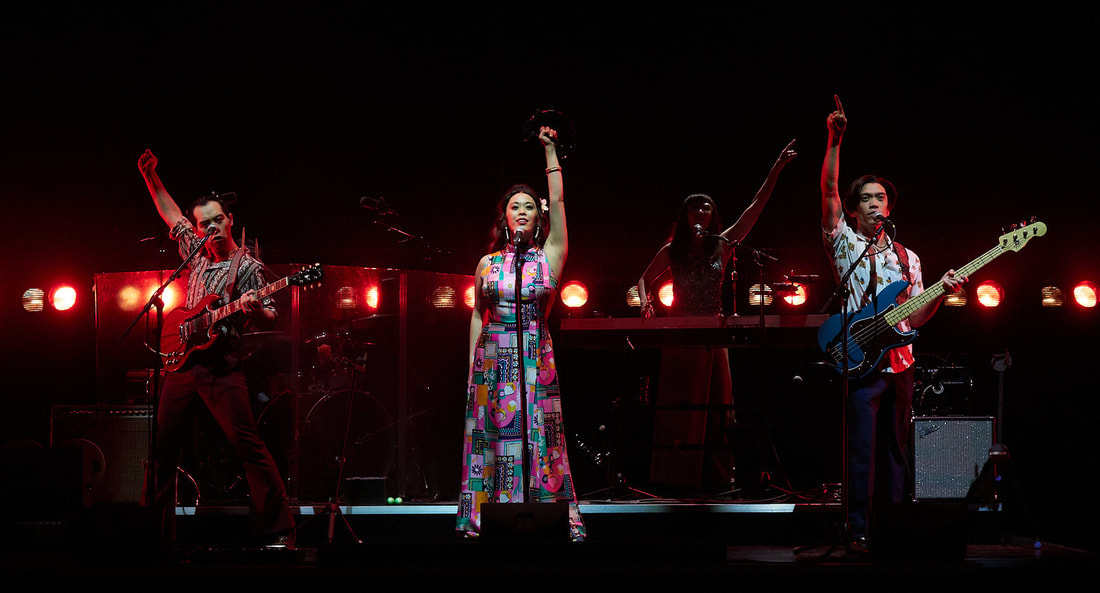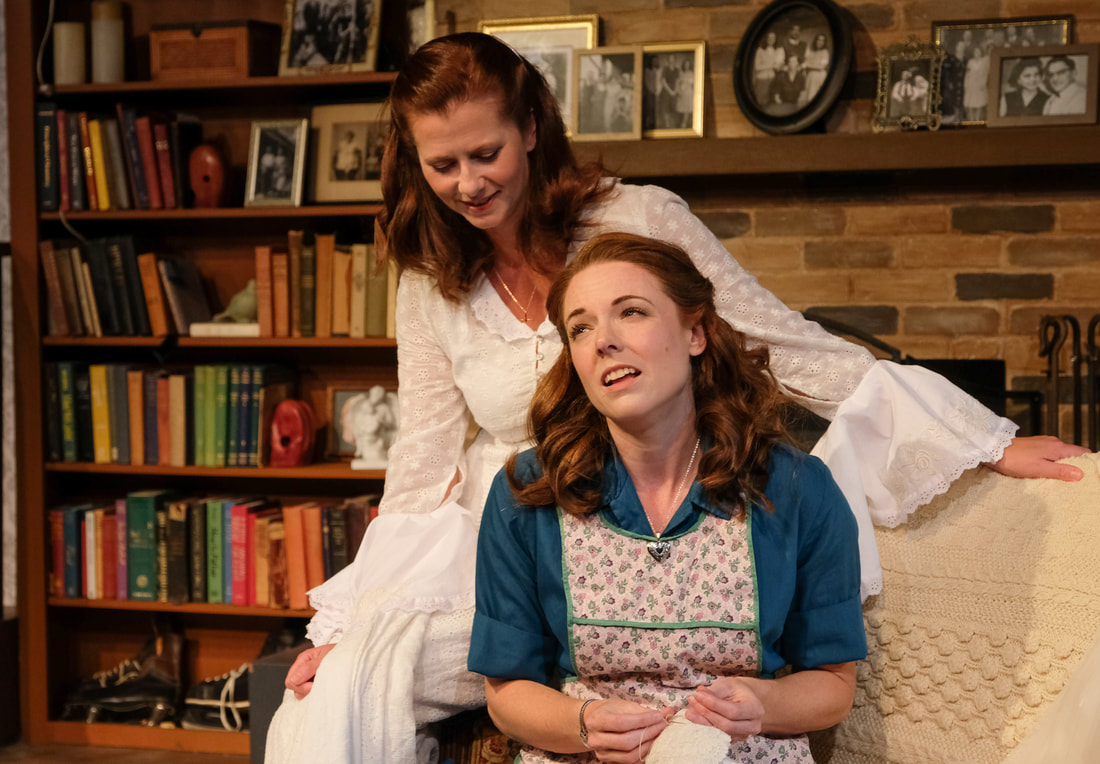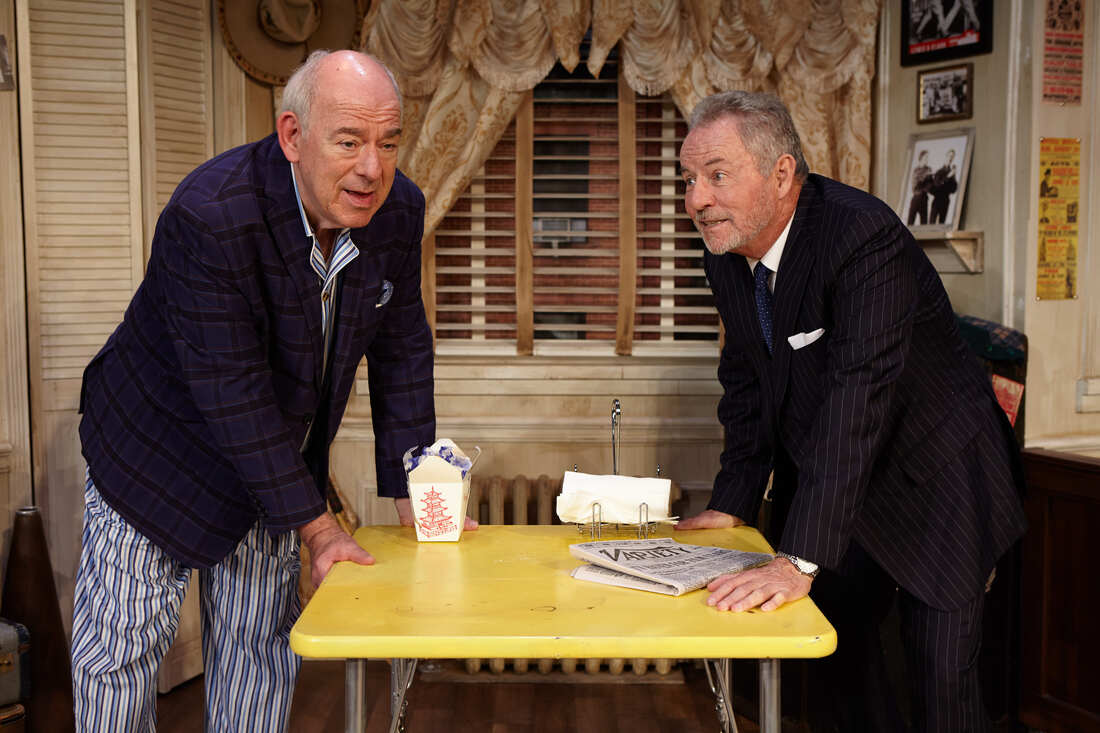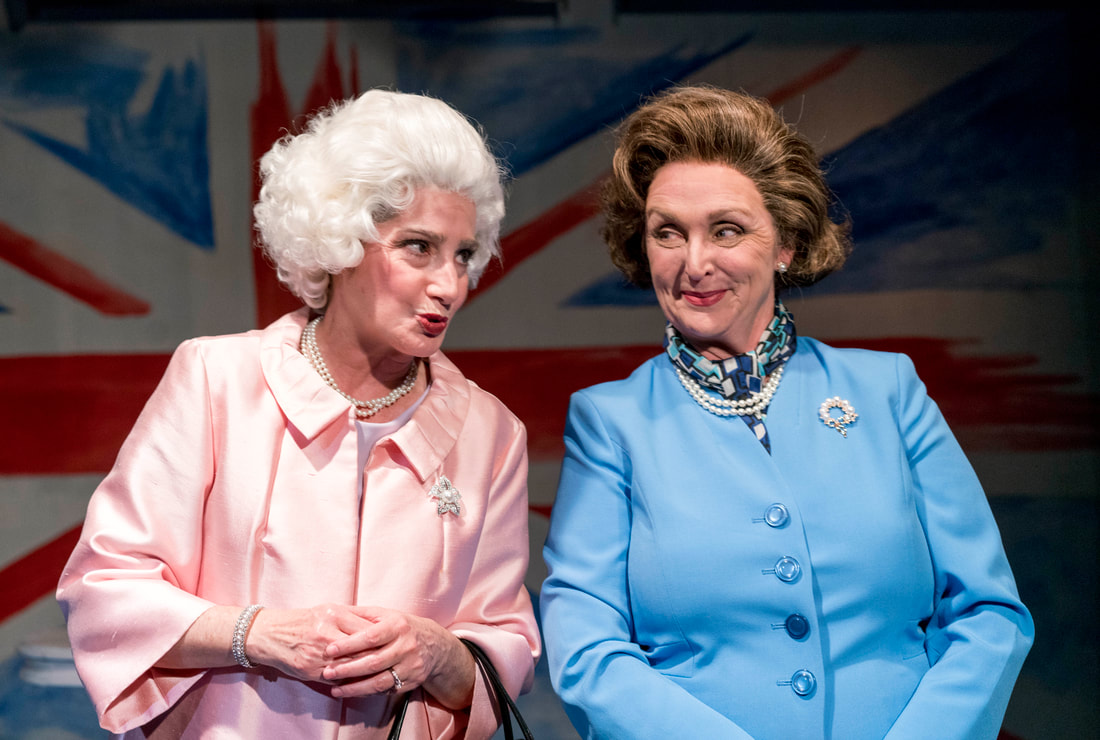|
"Cambodian Rock Band" at La Jolla Playhouse. Photo by Jim Carmody “Cambodian Rock Band” is a stirring work of theater that comes along not nearly enough. Its intuition for creating moments on the stage is keen, its comingling of insight and emotion rare. What Lauren Yee’s play may accomplish most artfully, however, is juxtaposing tragedy on both a mass and an intimate scale with a celebration of music at its most cathartic and redemptive.
Yee is a 2012 MFA graduate of UCSD’s Department of Theatre and Dance and one of the hottest playwright in the country. It’s fitting that her “Cambodian Rock Band,” which she says was inspired by first hearing the Cambodian and American band Dengue Fever during her student years, is onstage at La Jolla Playhouse on the UCSD campus. The play-with-music was commissioned by the South Coast Repertory Theatre in Orange County, where it opened to raves last year. The Playhouse staging, directed by Chay Yew, is a co-production with Portland Center Stage at the Armory. Songs by the L.A.-based Dengue Fever are featured in “Cambodian Rock Band” and are performed by the cast members. Jangly and propulsive, the music is an urgent and atmospheric amalgam of ‘60s surf rock, garage rock and psychedelia. As immersive as the live music is, the story of “Cambodian Rock Band” – a young woman (Brooke Ishibashi) named Neary in Phnom Penh working to bring to justice a Khmer Rouge war criminal (Daisuke Tsuji) – is taut with human drama. Neary’s father Chum (Joe Ngo) surprises her at her hotel, and soon a long-kept secret about his past in his native Cambodia comes to the fore. He tells his story in Act 2, when the full depth of the Khmer Rouge brutality is laid bare. Ngo’s performance, both with and without an electric guitar, is an unforgettable one. The brilliance of “Cambodian Rock Band” is its facility for shifting but also sustaining mood while never straying from its conscience and soul or from the cautionary messages it imparts. The potency of Cambodia’s music is an affirmation of a people’s survival and courage in the face of humanity at its worst. So too is the love between a parent and child demonstrated as transcendent and unbreakable. (Review originally published in San Diego CityBeat on 11/20/19.)
0 Comments
Sarah Jane Nash (top) and Kate Rose Reynolds in "And Neither Have I Wings to Fly." Photo by Ken Jacques Metaphor alert! Metaphor alert! Whenever the title of a play, or any narrative work for that matter, includes the word “fly” it’s a safe bet that the ensuing story will have something to do with a person at the outset tethered by fate or circumstances being uplifted. In playwright Ann Noble’s “And Neither Have I Wings To Fly,” that person is Eveline Donnelly, a young Irish woman living a dutiful but mostly joyless life tending to her widowed father and her younger, impetuous sister, Kathleen. What will it take to get Eveline’s dreams off the ground? Why a ghost, of course.
But Noble’s 1995 play isn’t flighty at all. On the contrary, it’s grimly serious on the subjects of death and duty. Without complaint and with nary a smile, Eveline does what she believes she must do in a depressing, dysfunctional household – until the spirit of her mother appears (only to her), causing her to doubt everything, including her own sanity. “And Neither Have I Wings To Fly” is, then, a plum opportunity for a talented actress, and Scripps Ranch Theatre’s production has one in Kate Rose Reynolds. Her Eveline’s subtle transformation is accomplished with an aching, yearning grace. Reynolds previously appeared in SRT’s “Move Over, Mrs. Markham” and “Communicating Doors.” The play’s buttressing subplot involves sister Kathleen (Katee Drysdale, brimming with youthful impulsiveness), her engagement to earnest but bland Leo Doyle (Hayden Emmerson), her infatuation with a swaggering actor (Zackary Bonin) and her deep-seated issues with her and Eveline’s father, Peter (Walter Ruskin). Throw in Leo’s “bad boy” brother Charlie (Paul Eddy) falling immediately for Eveline and you have an extended Irish family drama at its juiciest. While the affected Irish accents are thick and the emotions turned up high most of the time, the staging under the direction of Jacquelyn Ritz retains enough introspection and humbled awareness of life’s temporality that its dignity and messages are not undone. The title of the play, incidentally, is taken from a Scottish folk song, one heard more than once, and chillingly, during the production. (Review originally published in San Diego CityBeat on 11/13/19.) Lenny Wolpe (left) and James Sutorius in "The Sunshine Boys." Photo by Aaron Rumley Its mugging and leering vaudeville scene aside, “The Sunshine Boys” is an old-fashioned, gently paced relationship comedy. The relationship in this vintage Neil Simon play is between a couple of crusty comic veterans whose 43-year partnership belied a foundational dislike for and intolerance of each other. At North Coast Repertory Theatre, the pair is portrayed with all due spit and vinegar by Lenny Wolpe (as Willie Clark) and James Sutorius (as Al Lewis). Watching the two spar – and it takes a long while in Act One before they get to do so – is the heart of the show, directed at North Coast Rep by Jeffrey B. Moss.
Wolpe does, however, wring some comic tension out of his multiple scenes with Bryan Banville, who plays Clark’s harried nephew with likable exasperation. That nephew, who happens to be an agent, is the one who had the bright idea to reunite the estranged Lewis and Clark for a network TV special. Bad idea, but good fun for theatergoers. (Review originally published in San Diego CityBeat on 11/6/19.) Sandy Campbell (left) and Linda Libby in "Handbagged." Photo courtesy of Moxie Theatre If Moira Buffini’s “Handbagged” were a better play, it might have provided tour-de-force opportunities for two of San Diego’s most gifted leading ladies: Sandy Campbell, who portrays Queen Elizabeth II, and Linda Libby, who plays Prime Minister Margaret Thatcher. These two make the most out of their moments in Moxie Theatre’s production of Buffini’s historical comedy. But because of the structure of the 2013 work, they’re obliged to take a back seat to the two women portraying younger versions of the queen and “Mags”: Debra Wanger (measured) and Lisel Gorell-Getz (strident), respectively. The potential for provocative confrontations between the two latter-day British icons is also mostly lost in the play’s fact- and gossip-filled recounting of the history in the UK during the Thatcher years in power.
All four actresses give their best, nonetheless, and the device of having two ensemble actors, Max Macke and Durwood Murray, playing a raft of other characters (Ronald Reagan, Dennis Thatcher, Neil Kinnock, et al) contributes to “Handbagged” having many animated exchanges onstage. In any event, it’s a treat for anglophiles. (Review originally published in San Diego CityBeat on 11/6/19.) |
AuthorDavid L. Coddon is a Southern California theater critic. Archives
July 2024
Categories |
David Coddon |
|



